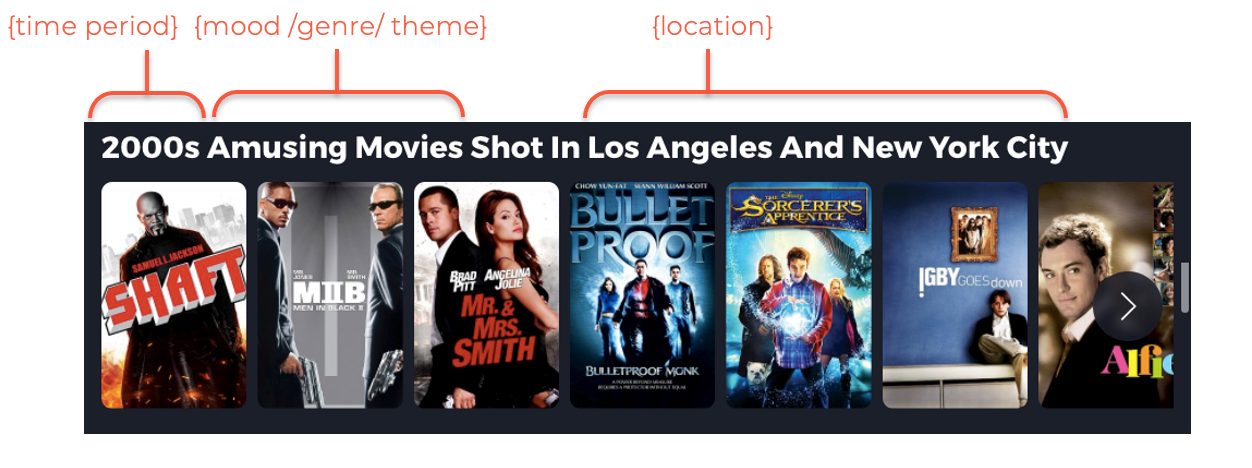Dynamic Categories
Dynamic Categories is an advanced UX Engine feature that allows a more personalized content discovery experience.
You are here:
Intro
With a vast library of content, navigation is today simplified by adapting the user interface to customers’ tastes, needs, and devices. The more the adaptation is granular, the better the customer experience, and with it, engagement, satisfaction, and retention.
In finding new ways to meet users’ expectations, at ContentWise we created Dynamic Categories. Dynamic Categories is an advanced UX Engine feature that allows a more personalized content discovery experience.
What Is It?
Dynamic Categories is based on UX Engine processing ability to analyze users, events, and available content attributes. Thanks to this feature, UX Engine can create dynamic collections and showcase them throughout the user interface (UI). Once these collections are validated, they are assigned to users and displayed every time they connect.
With Dynamic Categories, UX Engine can build personalized micro-genre that automatically create compelling and relevant genre-specific collections for every user.
Within a set of content metadata (“categories” or “micro-genres”), it is possible to compose automatically complex and multidimensional carousels recipes with more than one category or genre: the UX Engine will pick the best values for each user. An example.

As you can see by the image, there are four main streams of metadata:
- A time period: 2000s
- A genre indicator: Amusing Movies
- A fixed indicator: Shot in
- A place indicator: New York and Los Angeles
The UX Engine builds categories following user’s consistent patterns, not just picking one stream of metadata, but rather selecting and combining several data sources to create what matters to the viewers.
Thanks to native multi-language automation, the UX Engine can simplify error-prone and manual tasks while reaching a more granular targeting.
Why It Is Useful?
Trustworthy AI is also an important theme in the field of AI-based personalization systems: it is proven that providing clear explanations to the user is one of the most effective ways to increase service trust. That is exactly the function of micro-genres like “2000s Amusing Movies Shot in New York and Los Angeles”.
Dynamic Categories allows a very granular and tailor-made representation of users’ tastes: the level of personalization, and with it, KPIs like time to content and engagement are likely to improve.
Also, Dynamic Categories can drastically reduce editorial teams’ curation workflows: the UX Engine will automatically select relevant information and combine them to showcase a great user experience.